Why is My Rabbit Shaking?

By Evelyn Harcourt
septembre 29, 2025 - 1 min read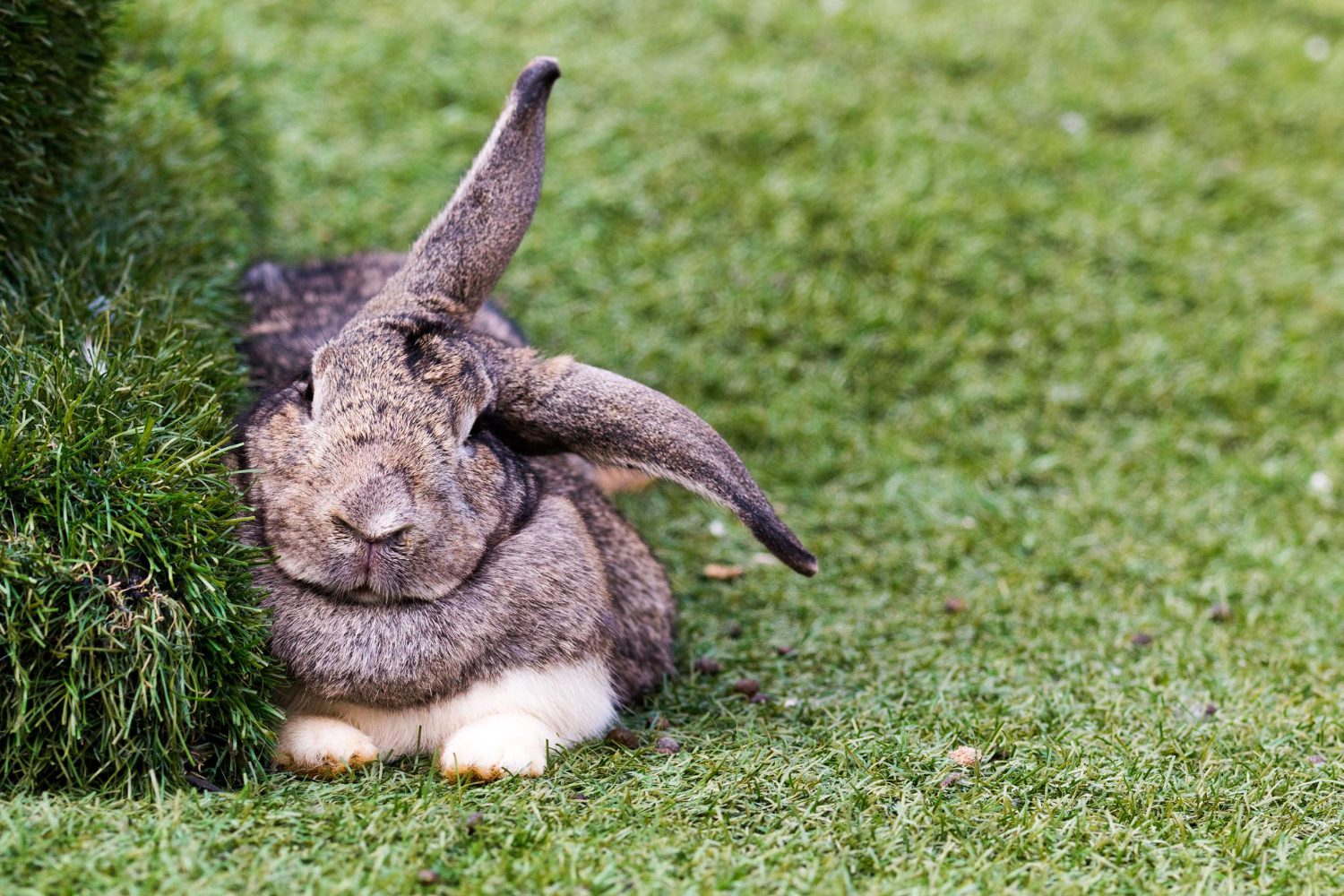
Shaking is seen frequently in rabbits and every rabbit will shake at some point in their lives. Often shaking is caused by something easily explained like the cold or hiccups, but it can indicate something more serious.
As rabbits are experts at pretending they’re coping well even when they’re sick, we do need to pay close attention to a symptom like shaking.
This article explores the many causes of rabbit shaking and helps you determine whether it should be taken seriously. We also discuss when a vet visit is needed and the potential diagnostic tests to consider.
Finally, we look at ways to reduce the likelihood of your bunny shaking and how to best support its holistic health.
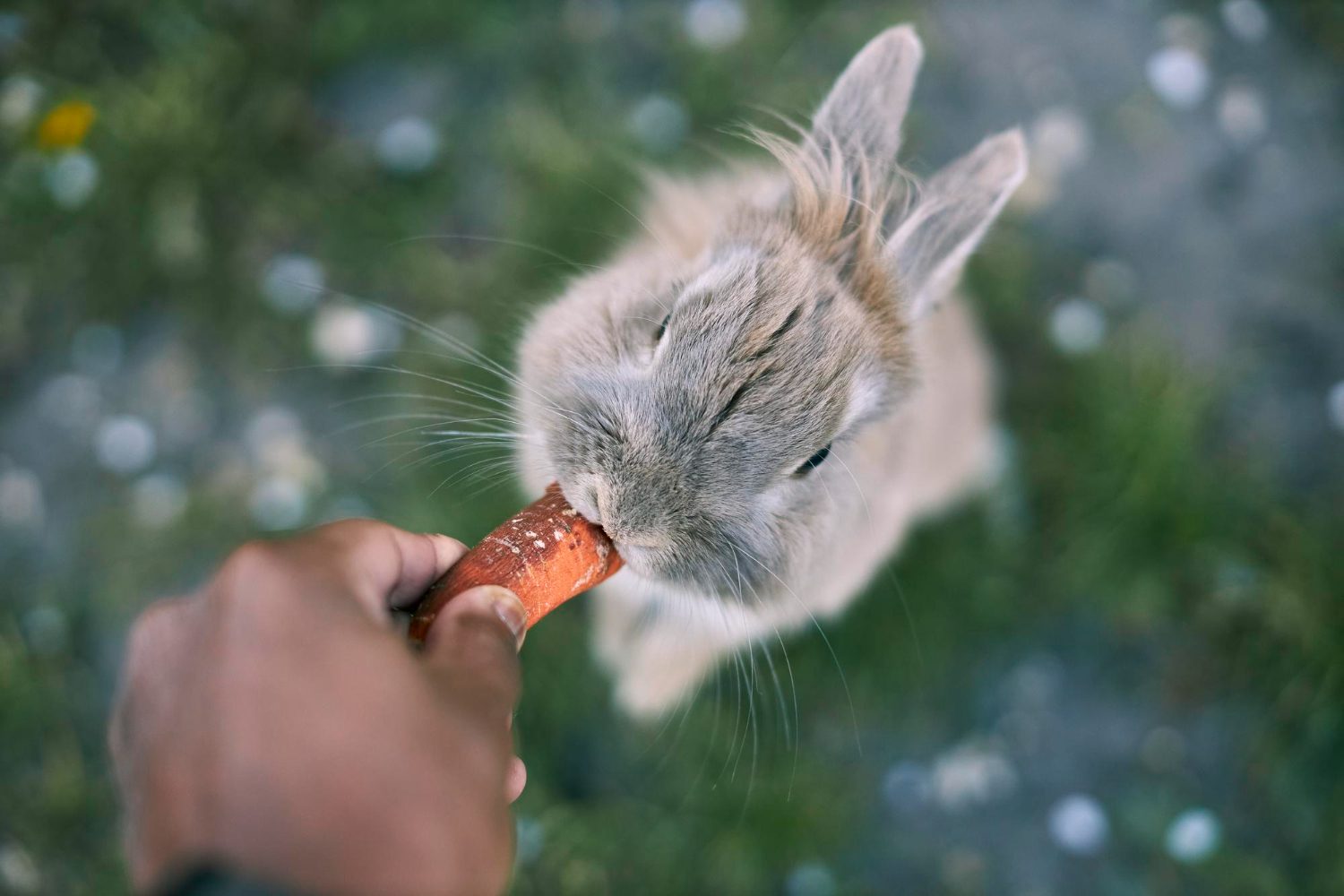
Is It Normal for Rabbits to Shake?
Every rabbit shakes sometimes. Still, we need to pay close attention to any new or unexplained shaking, as it can indicate a serious underlying issue.
Occasional Shivering vs Concerning Tremors
A little shaking after rigorous exercise, when very cold, or if your rabbit is clearly stressed (like in the vet clinic), is to be expected.
Ongoing shaking, or shaking that occurs alongside other symptoms, is more worrying.
How to Tell If Your Rabbit Is in Distress
Shaking is one sign that a rabbit is really stressed out. Other symptoms can include rapid breathing, freezing still, hiding away, foot thumping, and even aggression, such as biting.
Common Reasons Rabbits Shake
Let's take a look at the more common and benign causes for shaking.
Temperature Changes
Fluctuations in body temperature can lead to shaking.
This is generally seen when a bunny is in a very cold environment, and they shiver in an effort to create heat. It is also something that can occur with a high fever, though this is more unusual.
Hyperthermic shaking may be seen in the early stages of Myxomatosis, or in some cases of Pasteurellosis.
Fear, Stress, or Anxiety
Many rabbits are going to tremble when anxious. This is an animal that is very prone to being stressed, as they are a prey species and constantly on the lookout for threat.
Something as simple as a gust of wind, fireworks nearby, a dog bark, or a new scent in the area could cause significant anxiety.
Pain or Injury
Being in pain can lead to a change in how the rabbit moves, a limp, and potentially also shaking. This can be seen, for example, if they have fractured a limb or have overgrown teeth and dental spurs.
Digestive Problems
Rabbits are highly prone to digestive issues, especially gastrointestinal stasis and bloat. The intestines fill with gas and fluid, causing significant discomfort and stress. This may result in shaking for some rabbits. You’ll also notice a visibly swollen abdomen and reduced appetite.
Neurological or Seizure Activity
If the shaking only affects one body part this could indicate a partial seizure or a problem with the local nerve. General shaking and a loss of consciousness can be because of a generalised seizure.
Other Underlying Health Conditions
We frequently see shaking in those with altered balance and underlying medical issues such as ear infections and E cuniculi.
We may also consider recent poisoning, altered salt levels within the body, or toxin buildup due to liver disease. As you can see, shaking is quite a non-specific sign.
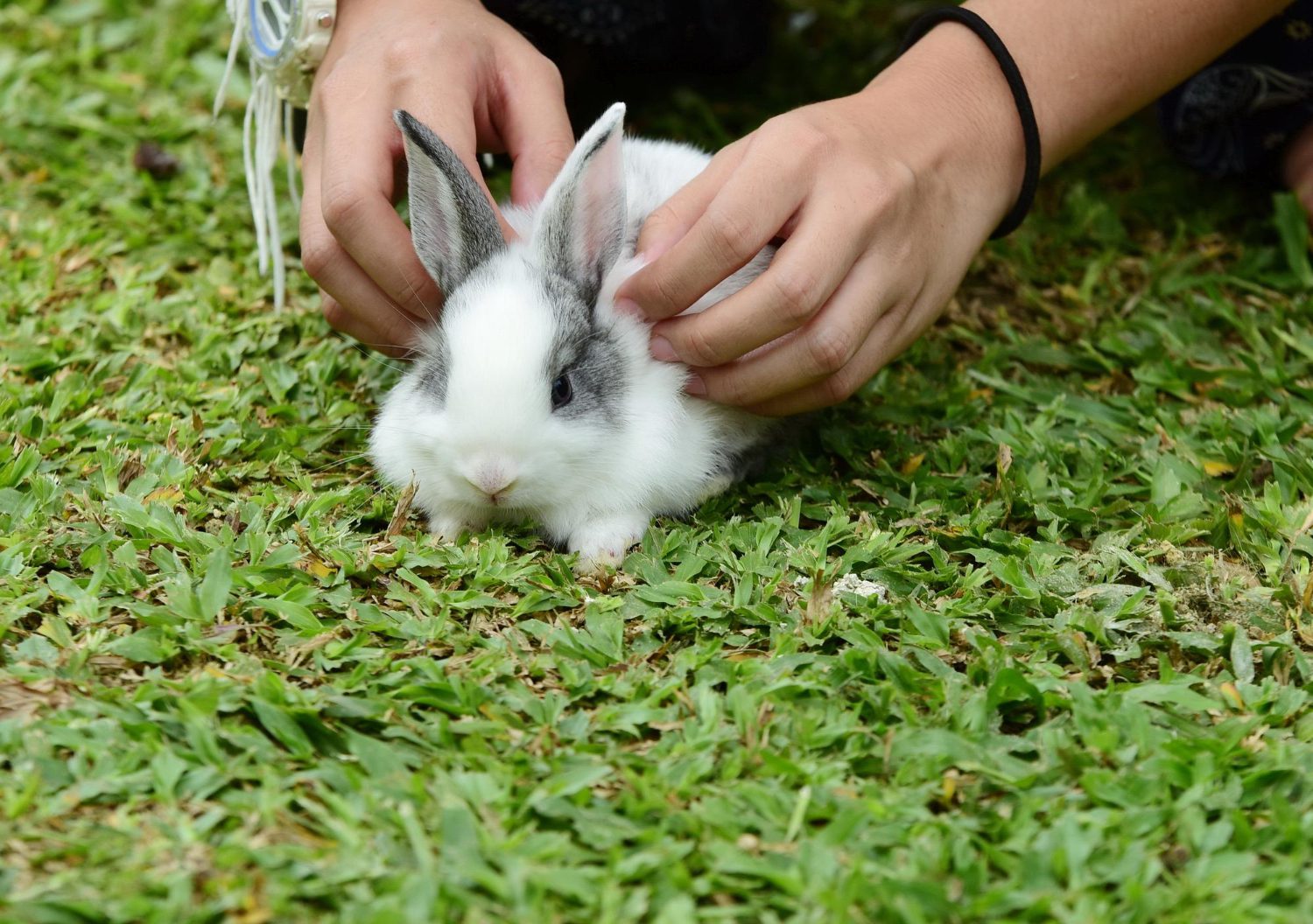
When to See a Vet for Rabbit Shaking
Mild shaking in a pet that is otherwise well is not always a huge concern. So, how do you know when to seek veterinary guidance?
Warning Signs That Indicate an Emergency
Rabbits are small and very sensitive creatures, and their health can deteriorate rapidly. Warning signs warranting an emergency vet visit would include:
- A period of several hours without eating
- A period of several hours without passing stool
- Rapid or laboured breathing
- Not moving for a long time
- Visible abdominal bloating
- Lack of balance or weakness
How Long Can You Monitor at Home?
Masters of hiding the signs of being unwell, once you’ve spotted your rabbit is poorly, they’re usually quite sick.
So, if you feel they’re acting differently and they’ve started shaking, contact your vet for guidance.
How Vets Diagnose the Cause of Shaking
Your vet will work with you to look into why your rabbit has started to shake.
Physical Examination
The physical exam is a great way for your vet to check your bunny from nose to tail and to see if there’s anything amiss.
They’re looking for the usual causes of shaking, like a source of pain or ear infection - and also checking for signs of chronic disease, such as weight loss or overgrown teeth.
The veterinarian will assess for any evidence of gut stasis, both listening to and feeling the intestines. They will also assess your rabbit’s posture, movement, nerve function, and reflexes. All of this can be done on the consult tablet.
Diagnostic Tests and Imaging
Tests may not always be indicated, and many rabbits are treated symptomatically without medication. However, it is sometimes useful to run tests to get a specific diagnosis.
This can include swabbing the ear for mites or infection, an X-ray to assess for gut impaction or gut stasis, and a blood or urine test to check for E. Cuniculi.
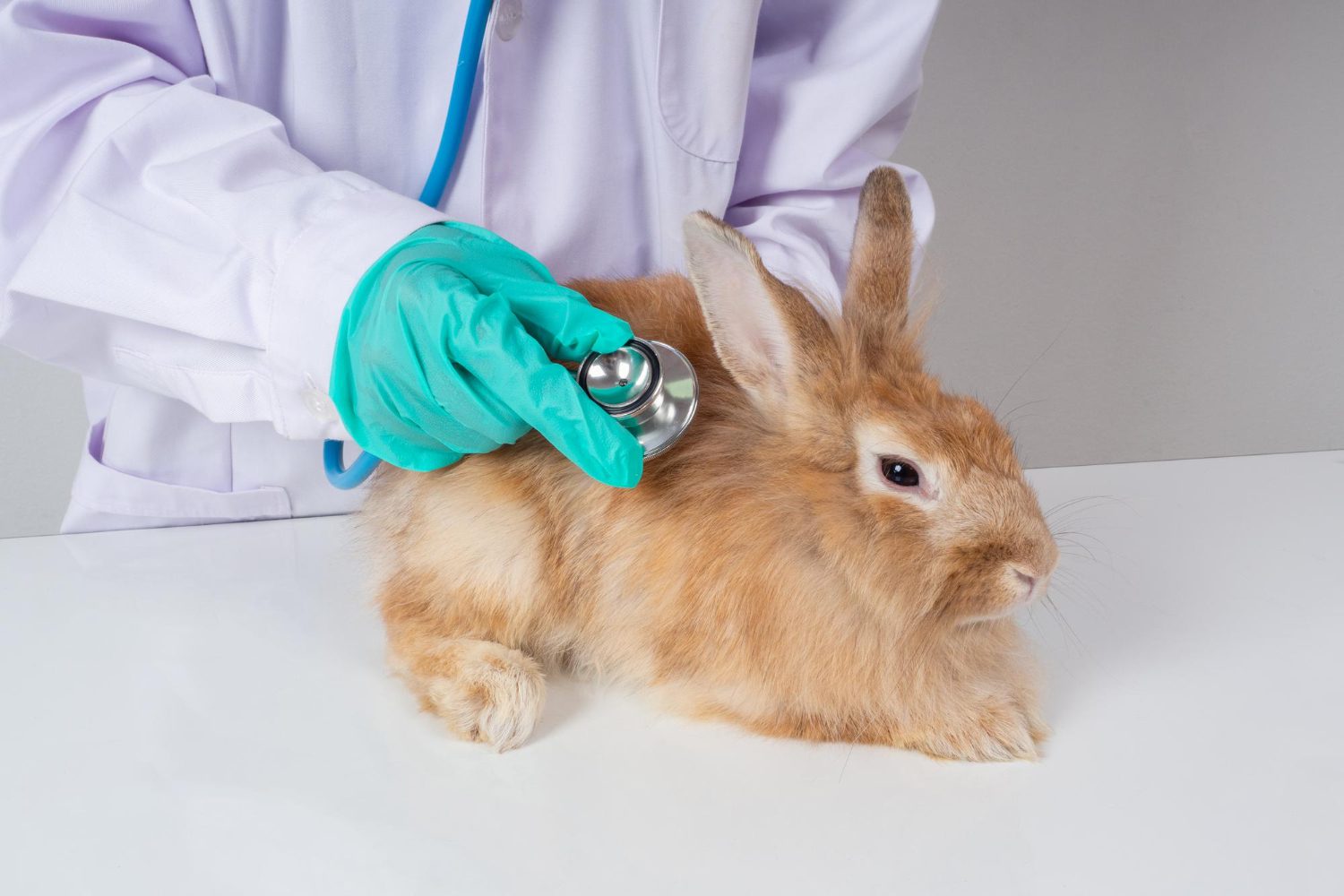
Treatment Options for Shaking in Rabbits
The key will be in identifying why the rabbit is shaking, so this can be dealt with appropriately.
Addressing Temperature or Stress
Some easy changes to make can include removing any drafts, keeping their habitat at a comfortable temperature, and minimising any handling or stress.
Common stress sources for bunnies include cats or dogs (even a puppy), lack of food, boredom, and the absence of at least one rabbit friend. Guinea pigs cannot be substituted for other rabbits, though they can live happily nearby.
Medications
Depending on the underlying issue, medicine such as antibiotics, anti-inflammatories, or parasite prevention may be issued. This might start off as an injection in the clinic and then be given orally with food or in the mouth over the next week or so at home.
Supportive Care and Comfort
If your bunny is shaking a lot, providing extra-thick bedding and perhaps a fleece bed can be helpful. Ensure there are no drafts, keep the lights down low, and talk to them softly.
Make sure they’ve got access to plenty of fresh water (from a bowl and dropper) and that they’ve got ample soft hay and greens to munch on. Consider giving some herbs (like parsley, mint and basil) as treats, to help whet their appetite if needed.
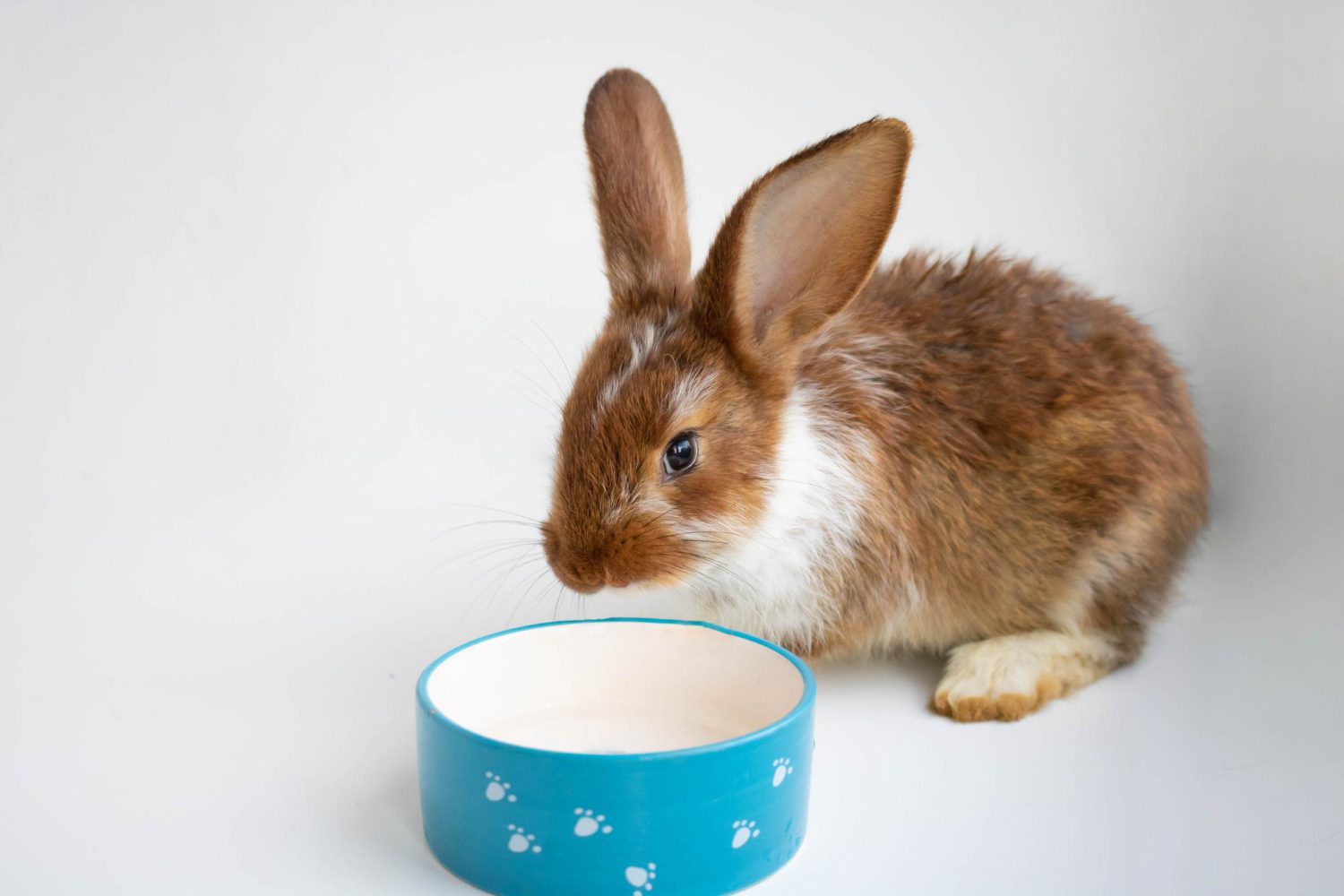
Preventing Shaking Episodes in Rabbits
Certain things can be done to help prevent shaking episodes.
Proper Housing and Temperature Control
Outdoor rabbits need both a large hutch and a run with good weather-proofing. Avoid wire flooring and always cover the flooring with dust-extracted hay.
Most rabbits are comfortable at temperatures of 10 to 20 degrees Celsius. Their thick fur means that they usually feel quite comfortable even if we feel a little chilly. They cope poorly in hot weather and can become heat-stressed quickly when overheated.
Stress Reduction
One of the best ways to reduce stress is to always ensure your rabbit has a bonded friend. A lonely rabbit is in a state of constant stress.
As well as this, try to ensure all of their husbandry needs are met- fresh water, plentiful food, lots of space, mental enrichment (toys and fun hutch accessories), and good ventilation.
Regular Veterinary Checkups
Rabbits should be seen at least annually for a routine checkup, and need one vaccine each year. Regular checks ensure that issues such as weight loss or overgrown teeth can be spotted early on, and older bunnies should be seen more frequently.
Book a checkup at any stage if you have specific concerns for your rabbit, or think something may be amiss.
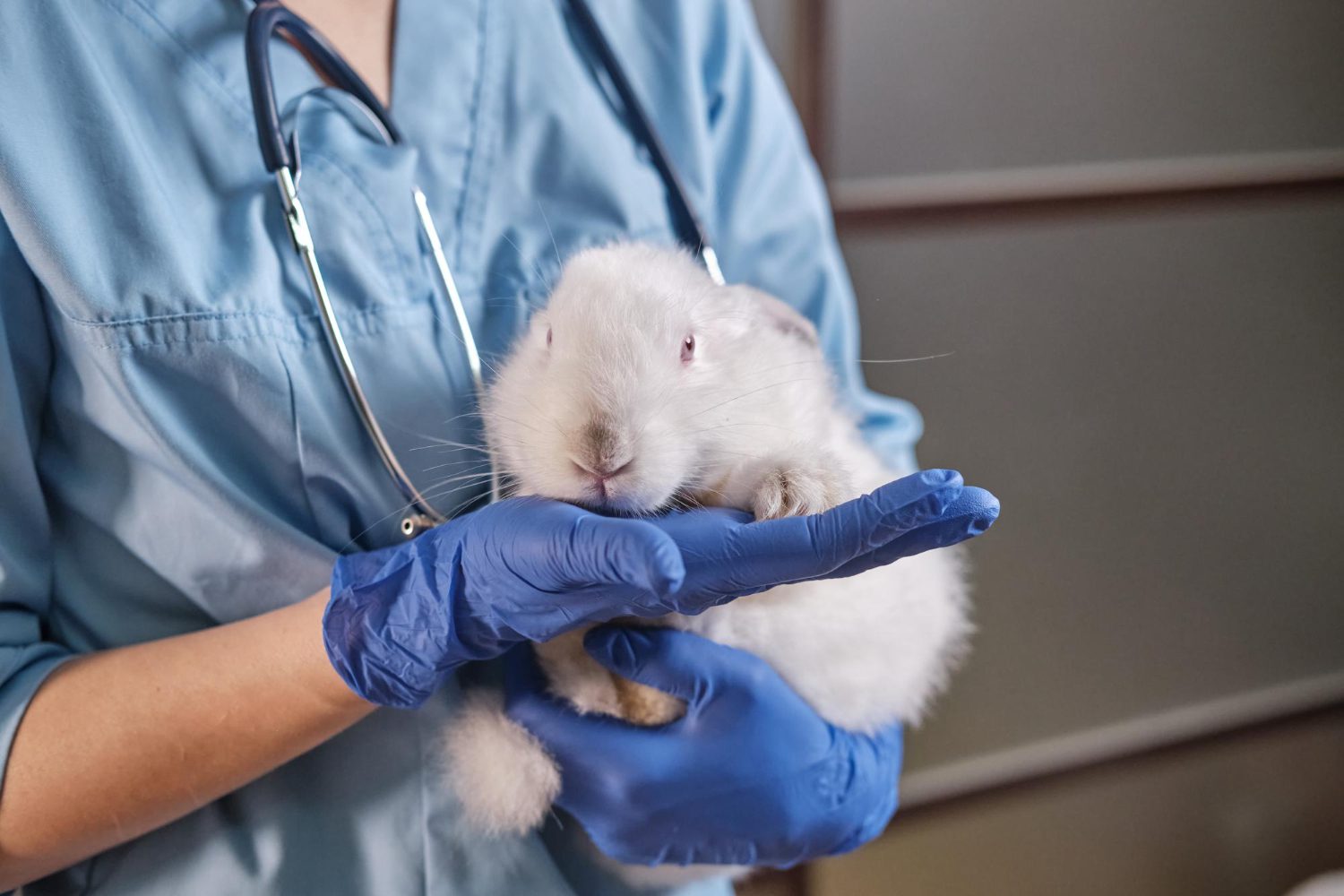
Explore More About Rabbits Shaking
Contact our team if you’re worried about your rabbit shaking and have more questions to ask.
Rabbit Shaking FAQs
Why Does My Rabbit Shake After Eating?
Mild and transient shaking can simply be a sign that your rabbit is excited or has really enjoyed their meal. However, if the trembling is repeated or prolonged, consider a medical issue such as overgrown teeth or GI discomfort.
Can Stress Alone Cause Rabbits to Tremble?
Yes, stress is a prevalent cause of shaking. As a prey species, their body responds dramatically to any stress they are feeling.
Is Shaking in Rabbits Always a Sign of Illness?
Not at all, shaking is regularly seen in healthy rabbits. This shaking is temporary and will resolve once the inciting cause is removed. For example, a cold bunny who warms back up will stop shaking abruptly.
Continue reading
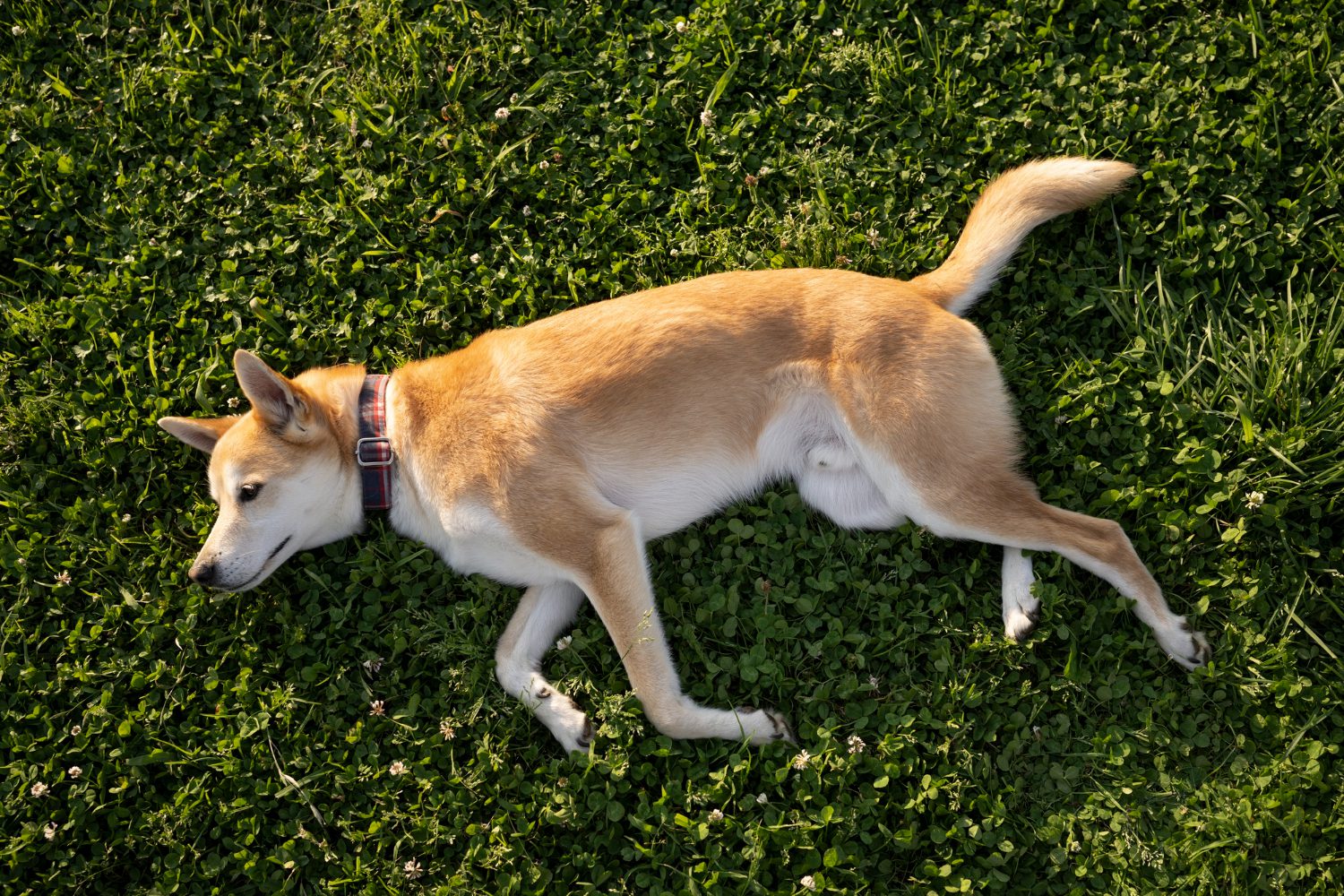
Signs of a Broken Tail in Dogs: Is it an Emergency?
Broken tail in dogs: warning signs and when it’s an emergency
Read article
Is a Dog Vomiting Blood an Emergency?
Is your dog vomiting blood? When to act and why it matters
Read article
Severe Allergic Reactions in Dogs
Severe allergic reactions in dogs: symptoms, causes and emergencies.
Read article